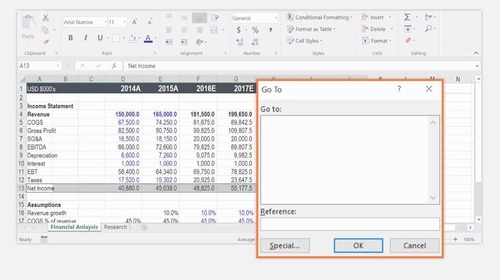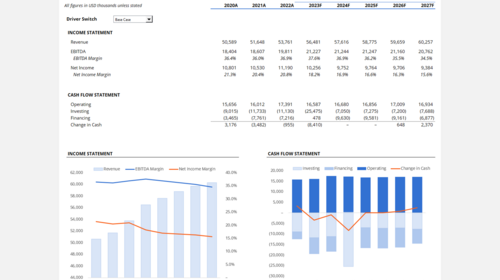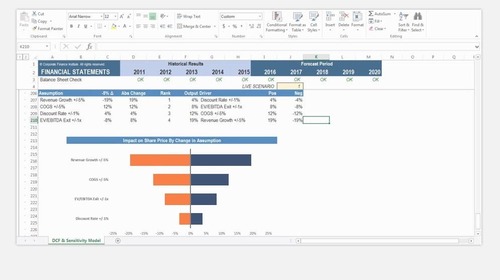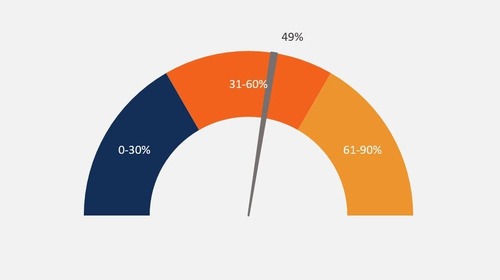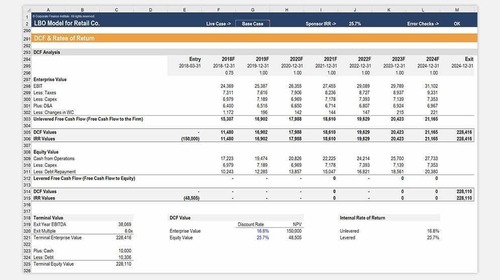- What is a Commercial Real Estate Broker?
- What is Commercial Real Estate?
- Qualifications for Becoming a Commercial Real Estate Broker
- Compensation of a Commercial Real Estate Broker
- Advantages of Hiring a Commercial Real Estate Broker
- Disadvantages of Hiring a Commercial Real Estate Broker
- Common Metrics Used by Commercial Real Estate Brokers
- Learn More
Commercial Real Estate Broker
A middle man between sellers and buyers of commercial real estate
Over 1.8 million professionals use CFI to learn accounting, financial analysis, modeling and more. Start with a free account to explore 20+ always-free courses and hundreds of finance templates and cheat sheets.
What is a Commercial Real Estate Broker?
A commercial real estate broker is a middleman between sellers and buyers of commercial real estate, who helps clients sell, lease, or purchase commercial real estate. A commercial real estate broker can work as an independent agent, an employer of commercial real estate agents, or as a member of a commercial real estate brokerage firm.
The primary difference between a commercial real estate broker and a commercial real estate agent is that the former can work independently while the latter does not. A commercial real estate agent must be employed by a licensed broker.

What is Commercial Real Estate?
A property is classified as commercial real estate when it is only used for the purpose of conducting business. Typically, commercial real estate is owned by an investor who collects rent from each business that operates from that property. Examples of commercial real estate include office space, strip malls, hotels, convenience stores, and restaurants. Sometimes, commercial real estate is also owner-occupied, meaning the business that operates at the site is also the owner.
Qualifications for Becoming a Commercial Real Estate Broker
Educational Requirements
The basic requirement for becoming a commercial real estate broker is a high school diploma (or an equivalent educational qualification). Most successful commercial real estate agents/brokers have an undergraduate or graduate degree in business, statistics, finance, economics, or real estate (with a special focus on the sale or lease of commercial property).
Legal Requirements
A commercial real estate broker is a real estate professional who has continued their education beyond the level of a commercial real estate agent. To be certified as a commercial real estate broker, an individual must obtain a state license in each state that they want to practice their profession in. An individual must pass the commercial real estate broker exam in order to obtain the certification and a state license. (Note: A commercial real estate license is separate from a real estate agent license).
The following steps must be undertaken for an individual to be eligible to take the commercial real estate broker exam:
- The individual must be employed with a firm for at least one to three years (varies by state)
- Next, they are required to take 60-90 hours of state-approved licensing courses.
- After the completion of the state-approved licensing courses, the individual is then eligible to take the exam. As part of the exam, applicants are often quizzed about prevailing federal and state laws in the commercial real estate industry.
Those who pass the exam are certified as commercial real estate brokers. To continue holding the license, a commercial real estate broker must take relevant continuing education courses every two to four years (again, the specific requirements vary from state to state – if you operate in multiple states, you should go by the requirements of the strictest state). Popular and helpful continuing education courses include mortgage loan brokering, real estate appraisal, and real estate law.
Compensation of a Commercial Real Estate Broker
The income of a commercial real estate broker is based on the commissions generated by sales. The listing agreement (a contract between the listing broker and the seller, specifying details of the listing) states the broker’s commission. The brokerage commission for commercial real estate is negotiable and, on average, is about 6% of the final sale price. If the property is being leased rather than sold, then the brokerage fee is decided on the basis of square footage and net rental income.
Usually, the commission is paid by the seller, from the sale proceeds, unless the seller and buyer negotiate a split (Note: the seller often factors the commission into the asking price). The commission is paid once the deal is closed. The commission is split between the buying broker and the selling/listing broker.
However, if the broker is not working independently, the commission is split four ways. First, the commission is split and credited with the buying broker and listing broker. Each broker then takes their broker fee/commission and, out of that, pays the appropriate agent their commission, which is typically a flat fee per deal executed.
The following expenses must be taken into account when setting the brokerage commission:
- Association fees
- Licensing fees
- Advertising and marketing costs
- Multiple Listing Service (MLS) fees
A credible reputation, repeat business, a strong local economy, and high-priced sales result in higher commissions for commercial real estate brokers.
Advantages of Hiring a Commercial Real Estate Broker
A commercial real estate broker can help prospective clients save time and money by carrying out the following functions:
- Building a network in the target community: In each area that a commercial real estate broker intends to work in, they create a network with important members of the concerned community. This ensures that they have a first mover’s advantage every time a property is up for sale or when a prospective buyer emerges in the community.
- Understanding tax and zoning laws: Many individuals refrain from investing in commercial real estate because of the large number of complex rules and regulations governing the taxation and purchase of commercial property. This complexity is compounded by the fact that these rules and regulations vary across states, industries, and zones. A commercial real estate broker must have an excellent understanding of tax and zoning laws to complete the aforementioned formalities on their client’s behalf and, thus, remove a barrier to investment in commercial real estate.
- Evaluating business plans: A commercial real estate broker evaluates their clients’ business plans to determine their feasibility. They often use statistical analysis (such as break-even analysis) to determine the basic margin of safety on a client’s investment.
- Negotiating with clients: Commercial real estate brokers have to be excellent negotiators and mediators because, unlike residential real estate brokers, commercial real estate brokers often have to deal with more than two parties when arranging the sale or lease of a property. The various parties often have conflicting incentives, which a commercial real estate agent helps align through negotiations. A commercial real estate broker must have excellent communication and persuasion skills to successfully navigate negotiations.
- Conducting research: Often, the success of a client’s business depends on local conditions. A commercial real estate broker has to provide prospective buyers of commercial real estate with research regarding local demographics, businesses, environmental quality, property maintenance costs, and the desirability of the location of the property.
- Analyzing lease payments: A commercial real estate broker researches and analyzes trends in lease payments for commercial real estate in the area in which she/he operates. There are four basic types of commercial real estate leases:
- Single net lease: Under this lease, property tax is paid by the tenant.
- Double-net (NN) lease: Under this lease, property tax and insurance are paid by the tenant.
- Triple-net (NNN) lease: Under this lease, property tax, insurance, and maintenance are paid by the tenant.
- Gross lease: Under this lease, property tax, insurance, and maintenance is paid by the landlord. The tenant only pays rent.
Larger tenants usually enter into longer leases, which provides security to the landlord as a steady stream of rental income is ensured. (For example, a company such as Amazon is unlikely to lease office or warehousing space that it plans to occupy for only one year.) However, lease rents can be adjusted in a more flexible manner under a shorter lease term.
To learn more about reading a commercial lease, consider CFI’s course on How to Read a Lease & Analyze a Rent Roll.
Disadvantages of Hiring a Commercial Real Estate Broker
Under some circumstances, a commercial real estate broker may show a client only those properties where the commission is high, advise a client to make a deal paying rent higher than necessary, or rush the client through the process in order to maximize the number of deals that he/she can make. To counter such behavior, the client can enter a contract with the broker in which the latter is paid a flat fee as opposed to a commission.
Common Metrics Used by Commercial Real Estate Brokers
Gross Rental Yield: Gross rental yield expresses rental income as a percentage of the value of the property before taxes and other expenses are deducted. It is calculated as follows:
Gross Rental Yield = (Annual Rental Income/Cost of Property) x 100
Commercial real estate results in an average yield of 7%-7.5%, as opposed to residential real estate which results in an average yield of 4%–5%. This is a popular metric for comparing commercial real estate properties which are going to be rented/ leased out.
Capital Gain/Total Return on Investment: Capital gain refers to the profit made by selling a property. It is calculated as follows:
Total Return on Investment = {(Gain from Investment – Expense of Investment)/ Expense of Investment)} x 100
This is a popular metric for comparing commercial real estate properties which are going to be sold. Investment in commercial real estate which provides a wide scope for improvement and/or expansion is ideal for earning capital gains.
However, it is important to note that there exists an inverse relationship between gross rental yield and capital gain/total return on investment.
Learn More
Thank you for reading CFI’s guide to a commercial real estate broker. Commercial brokers are important for a healthy property market. Find out more by clicking on the following links:
Create a free account to unlock this Template
Access and download collection of free Templates to help power your productivity and performance.
Already have an account? Log in
Supercharge your skills with Premium Templates
Take your learning and productivity to the next level with our Premium Templates.
Upgrading to a paid membership gives you access to our extensive collection of plug-and-play Templates designed to power your performance—as well as CFI's full course catalog and accredited Certification Programs.
Already have a Self-Study or Full-Immersion membership? Log in
Access Exclusive Templates
Gain unlimited access to more than 250 productivity Templates, CFI's full course catalog and accredited Certification Programs, hundreds of resources, expert reviews and support, the chance to work with real-world finance and research tools, and more.
Already have a Full-Immersion membership? Log in
